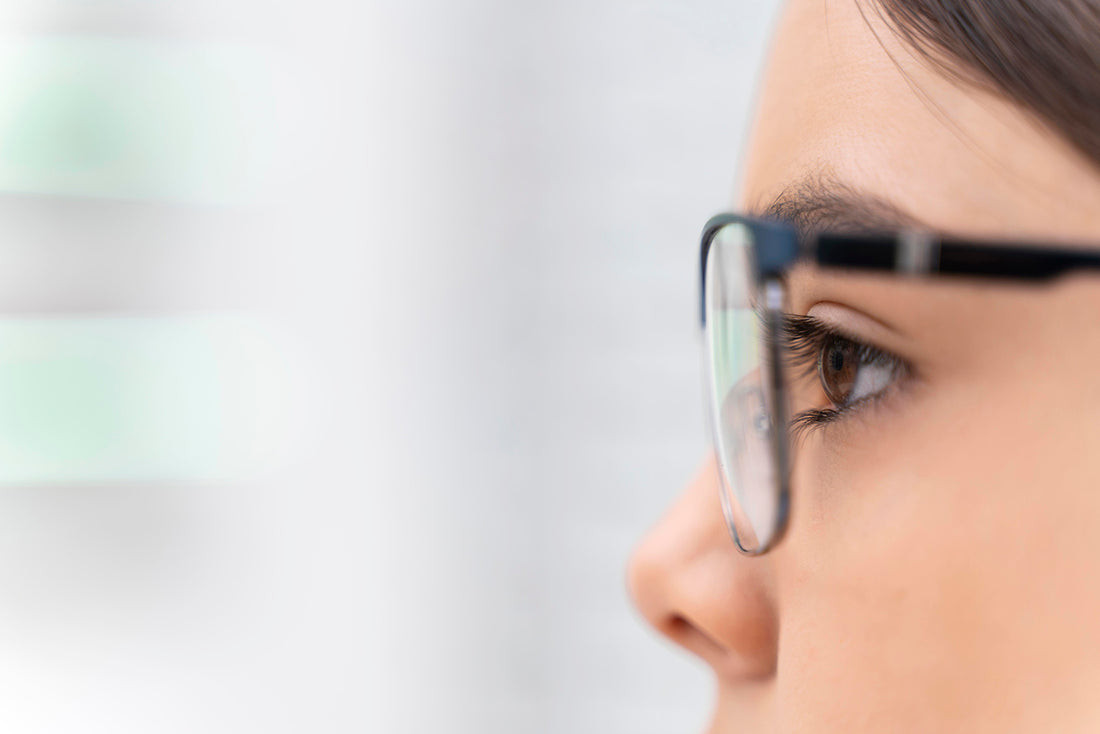
How to Choose Lenses of Glasses at LUXYIN
Share
Lenses are the most important part of your eyeglasses because they help correct your eyes and provide clear vision. The lens type you choose is quite important to your comfort when wearing glasses.
This guide will help you learn about different types of eyeglass lenses and help you choose the lenses that fit you best.
- Prescription Glasses (Single Vision)
Single-vision prescription glasses are the most common type of prescription glasses. Single vision lenses are spectacle lenses with only one dioptric power and are used to correct vision at only one specified distance (power distance or reading spectacles).
They are appropriate for people who need vision correction for one viewing distance only – whether farther or shorter distances (nearsighted or farsightedness), so that they can have a clear vision for things like driving or reading.

- Progressive Glasses (Multi-Focal)
Progressive glasses eliminate the distinct divisions between different prescriptions. Progressive lenses, also called multifocal lenses, are no-line multifocal eyeglass lenses that allow you to do close-up work (like reading a book), middle-distance work (like using a computer), or distance viewing (like driving) without needing to change your glasses.
They are appropriate for people who need corrective lenses to see both distant and close-up objects. And progressive glasses usually cost a little more than single-vision glasses.
*ADD(NV-ADD) is required for progressive glasses.

- Lined Bifocal Glasses
Bifocal glasses have two viewing areas divided by a visible line. The top viewing area of the glasses will be for your distance vision. Below the line, in a smaller viewing area will be your reading segment.
Bifocal glasses can be worn full-time because they can help you see both distant and close up objects, but some people may dislike the noticeable line on their lenses.
*ADD(NV-ADD) is required for progressive glasses.

- Non-Prescription (Plano) Glasses
Non-prescription glasses are glasses that have no degree in the lenses and have no visual correcting power.
They are appropriate for people who have perfect vision don't need prescription glasses to correct their vision, or people who choose to wear glasses just for fashion purposes.
- Reading / Bifocal Reading Glasses
Reading glasses usually have non-prescription lenses at top of the lenses for distance, and reading power at the bottom for near reading. You can choose Regular Progressive Readers if you are an experienced wearer; or Beginner's Progressive Readers if you are a beginner, or lined bifocal reading glasses and single-vision reading glasses.
They are typically appropriate for those with presbyopia, the age-related eye condition that decreases a person's near vision. The need for reading glasses usually increases with age.

- Blue Light Blocking Glasses (Non-Rx)
Blue light glasses are glasses with specially-crafted blue light blocking lenses that can block or absorb blue light given off from digital screens. Blue light glasses help protect your eyes from glare and help reduce potential damage to your retina from prolonged exposure to blue light.
They are appropriate for people who spent a lot of hours in front of digital devices, especially for kids because they may be at higher risk for blue light retinal damage than adults.

- Frame Only
Frame only glasses are glasses without lenses.
They are appropriate for people who wear glasses just for fun or to look stylish.